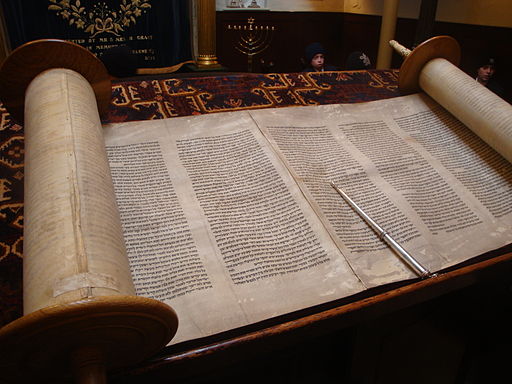No Need for Religion
Photo of woman at prayer by Free-Photos.
Bartgrinn's words are written like this.
Nerida's words are written this way.
This is a very Catholic area that we’re in.
Religion.
Yes. The Catholic Church is in a lot of trouble in this period.
They were always in trouble in some periods.
They’ve always done the same things: spreading fear, growing their powers over the people, stealing, cheating, all these things.
And then giving people an explanation that they could believe because they gave it to them in powerful words with colourful stories. And they could always say, ‘And God told me so.’
They’re in trouble at present because there’s discussion among victims of systematic rape and abuse of children over many years by the priests.
They always had it. This is not new.
And, if so, looking at history, they might disappear for a while. Then they might come back.
Someone will find some stories and think, ‘This is wonderful. This is so true. We should revive that. And it would be wonderful to be one of the ones who can use it for their own good.’
Hmm. You speak as one who’s seen it come and go.
Yes.
Must be unpleasant to see sometimes.
Pause.
You have areas with, let’s call it, severe climate, or you have problems with growing crops because of the climate or some other forces of nature. Some areas always had more of these issues than in other areas.
The power of Nature is distributed over the whole year to balance it out. If you have an area with heavy rains twice a year, for example, you’ll have very fertile ground between these seasons. That compensates for the extreme situation at other times.
In these areas, you’ll find lots of religions because the people are more devout towards Nature. Someone says, ‘Oh, this year the rain came later,’ or ‘It stayed a week longer’ or ‘for five moons’. And they could say, ‘And it’s all your fault because you behaved badly’. People would believe it.
It’s easier to make them believe that, than it would be if you're in an area that’s more settled, more balanced to begin with; where the forces of Nature are spread more evenly. It’s not like you have to wait for the rain to come through to make the next few moons or the next hundred tides more fertile. And then there will be nothing for a while.
Some areas are more balanced. They could have more harvests over the year. Smaller ones, by the result, but more than twice or more than three times a year. In these areas, it was more difficult to start a religion because people were not so scared of Nature.
You understand?
Yes, I think it’s a very interesting concept. Makes sense.
In more extreme areas you can tell people, you know, ‘Now, I have to blame you. You were bad. Rain stayed two months longer. It’s all your fault. If you do this and this and this and this, it won’t happen.’
Woman harvesting tea in Sri Lanka. Photo by Asantha Abeysooriya.
But of course, it still happens because it happens there all the time. So someone could blame them again: ‘You were still not good enough. You have to try harder. And you have to give me more of your possessions, so I can support you.’
Support you the way you think, not in any other way—not with physical labour, of course.
[Laughs]
So they would be dependent. They would get more and more and more into the religion. It’s very often in poor areas, where people really depend on Nature. This is one of these areas.
You mean here?
Yes. There is more religion because people need to believe in something to feel better and there is always someone to take advantage of that. Could be the Catholics here. But, it could also be the Lutherans or whoever is around.
In other places, it’s the Buddhists or the Islamists.
Yes. And all these groups think they are superior to everybody else. That’s why they had these wars about religion. It’s been going on all the time.
From the beginning, there were some that thought they were superior to others. If they, for example, created a religion, they could get these followers.
People who say, ‘We support you. You tell us these nice stories about the way you’re gonna help us if we give you our possessions.’
Wealth accumulated (and art crafted) in the name of religion. The magnificent mosque gate at Shiraz, Iran. Pic by Steven Su.
So they had a large group of followers, for example.
And then, if this group was bigger than that one--and they wanted to have this area, too--they’d start a fight. If you convinced those, your group got even bigger. I mean, they did convince them: with sticks and clubs and arrows and gun bullets—whatever was around at the time.
Mhmm. And then the priests got richer.
Yes. There is always a group that takes advantage. The ones that joined them will get nothing out of it. Except maybe an earlier end of life. Or poverty.
Yes. Poverty can lead very quickly to the end of life. And despair and deprivation and powerlessness can also lead quickly to the end of life.
Yes.
And religion breeds all of those things.
Pause.
I’ve been wondering lately if part of the work that we’re doing, part of the reason that you come to speak in this period, at this moment, is because some of us are ready to try to learn and to grow apart from religion.
You have more and more people coming back. There are not many young souls, like very young souls, coming on to the planet.
So you have older souls coming back: who had plenty of experience, who would like to change things—without making free people slaves of a man-made religion.
There is no need for it. It is only a need for weak people. All religions are man-made.
We don’t say God doesn’t exist. It’s the same thing everywhere, it just got different names.
It’s the spirit, the power of the planet, the power that lives within the people, the power of creation.
‘Creation’, as it’s used in religion, is misunderstood. It is something else.
So, there is no need for religion. People need to find out that they are part of what they create. And it’s their creation.
And what they call God: the power lives in all of them. It’s part of all of them.
It’s not something like, ‘You don’t have any of it. It’s up there. You have to believe in it.’ That’s what religion tries to tell them, no matter which religion you use. This is not the case.
Find it within yourself because it’s there.
You understand?
I do.
It is a foreign concept, I know.
I don’t think it’s a foreign concept.
It can be a very foreign concept for many humans.
It can be. For us, it’s not.
Find it within yourself. Photo by Alex Woods.
If you would go out in this place, you go to this so-called church on a Sunday and tell them. You will see what happens. You don’t need a prediction from me.
No, we don’t. We won’t do that.
You can’t tell them or try to tell them the truth or try to make them think by provoking them.
This never works. They need to understand in a gentle way. If you try to provoke them, they will fight you. It’s just a principle of human nature, part of the feeling of being superior.
You understand?
Yes. I have experienced that. I know that you’re right.
Don’t provoke. Try and explain.
Try to give them examples. Try to tell them stories—and I’m not talking about fairy tales.
They have things in their daily lives that could explain more to them, than what the priest does on a Sunday. They just can’t see it. Because they don’t expect it to be there. Because they were told, ‘It’s not in you, it’s up there and you have to believe it.’
A woman read the draft of our first book. She hadn’t read any of the channeled material before.
She has a Hindu background. She liked the material. She found it enlightening. She said she believed in reincarnation, but she never understood that she was the one who was going to responsible and affected—
Ah. Isn’t that funny?
It is a thought that wasn’t thought through to the end, where the understanding waits.
And the other thing that she said occurred to her when reading the material, was that none of the Holy Books say anything about protecting the Earth. She was quite struck by that. Of course, it’s because they’re all from man-made religion.
Yes. And every religion has someone who takes advantage of things.
It’s a bit like, ‘I try to get out of it whatever I can.’ They’re not thinking they have to protect or preserve anything. They think, ‘I want it. I want it all and I want immediately.’
So, of course, there is nothing written about it because that would have meant that they have to hold themselves back from taking it all at once and leave something.
Open Jewish holy book, The Torah. Photo by Jonund.
Something for the land to recover, something for the other people who live on that land and something for the future: protect it.
That would have meant they had to wait much longer to get what they really wanted.
But they wanted it, all of it, immediately. They did not want to wait. And they didn’t care what would happen in the future.
Some religions say you’re gonna live forever. Do you think they believe that themselves?
That would mean that you have to protect the planet.
If you tell people 'You’re gonna live forever,' forever is endless, til infinity. How can things last infinitely if you use it all up?
So they have quite a few, to put it mildly, wrong ways of thinking. Some of it is done deliberately because they don’t care. ‘I’ll have it all, I’ll have it right now. I don’t care what happens in the future.’
There are some that say this god created it all and wanted us to have it, ‘There will be an endless supply, just take it.’ They can’t see from here to there. If they’d look at one of these spheres they use to picture the planet or a map, they could see: This is all we have here. If we don’t regenerate, protect or save things, how can it last?
If it’s gone, it’s gone.
And there’s a lot gone already.
Skeleton of the extinct sabre-tooth tiger in the British Museum. Photo by 7854.
Yes.
I am not sure if you would happy if the sabre-toothed tiger was still around, but it was part of the planet, still. Some of the things that lived here were not so good for human beings. But they had the same right to be here.




